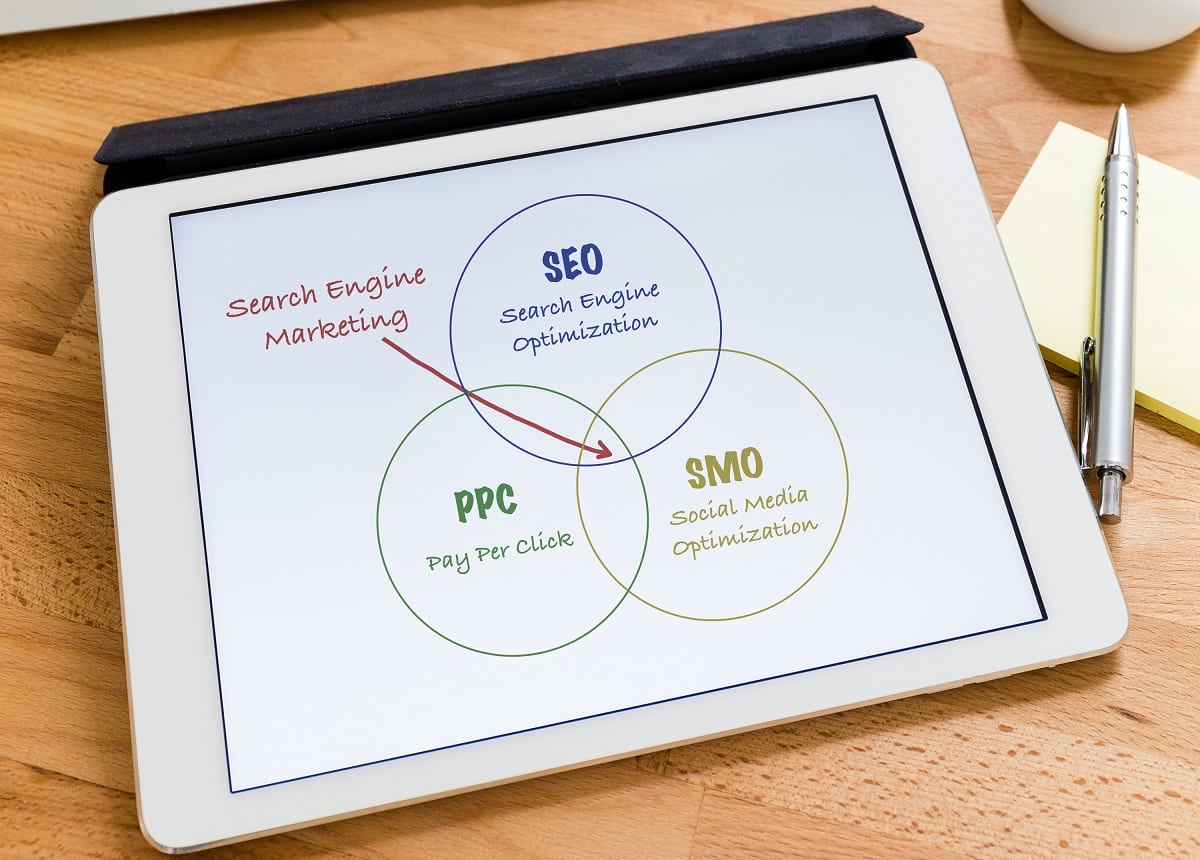Services

Beginning with legal marketing can be intimidating, but it’s crucial to grasp it as you build your firm and stand out in the crowded legal market. You’ll need a strategy, marketing tools, and commercial acumen to advertise your legal company. Sounds like a lot on your plate. At Vanguard Legal Marketing, we’ll handle this crucial part of your work so you can concentrate on more important things. We have the experience and have delivered positive results to our clients, particularly in the Legal sector. To understand how we can help you, here are our services.
Need Legal Marketing Services for Your Law Firm?
Call Vanguard Legal Marketing Now at 888-418-5540
Services Vanguard Legal Marketing Offers
1. Law Firm Branding
There are more than 1.2 million attorneys in the US. When choosing a lawyer to handle legal issues, prospective clients have options. Therefore, you must address the question of why they should pick you. This is where branding comes in. Your law firm branding is a crucial element of your overall marketing plan. Your distinctive qualities, unique selling propositions, and qualifications as an attorney come together to form your brand. You must use the power of branding your company to draw in the customers that need you the most. To reap the best outcomes of effective branding, you must put in the time and effort.

Though they are closely related, it’s crucial to realize that your brand and reputation are two separate things. Your brand is your promise that tells potential customers what they may expect when working with you. Your reputation conveys evidence of your abilities. For instance, referral traffic to your website may increase due to your reputation as a competent and successful attorney, but your brand convinces your client that you’re the best option.
The finest branding is based on a solid principle you and your team can adhere to, embrace, and uphold. Your organization as a whole needs to embody your brand. You will reap enormous benefits and foster customer loyalty when your company is clear on its brand and able to execute its promise.
Let Vanguard Legal Marketing help you develop your brand, from designing your original brand strategy to developing the components of your public identity.
2. Reputation Management
Legal reputation management involves controlling the story being told about your practice, including online reviews and social media references. It entails managing what your clients—past, present, and potential—and other people believe about your business by promoting favorable reviews, addressing issues that lead to negative reviews, and enhancing your company’s online and offline image.
Customer testimonials are a double-edged sword that either helps or hurts your reputation. Ninety-three percent of consumers claim that online reviews influence their shopping decisions, whether they are favorable or unfavorable. In actuality, 76 percent of buyers place equal faith in internet evaluations and personal recommendations.
You might believe that word-of-mouth recommendations are sufficient. A strong referral system helps some lawyers keep their doors open, but only if they have a solid reputation to back it up. Positive client reviews for your legal practice are necessary to develop your internet reputation.
Whether you work as a single practitioner or run a small law firm, you might be trying to establish your reputation. Or you might be merely attempting to preserve your reputation. In either case, Vanguard Legal Marketing will assist you in comprehending and executing the best practices for reputation management.
3. Content Creation

Simple content marketing involves online content, such as blogs, social media, videos, and podcasts, which raises awareness of your business.
Law firm content marketing generates three times as many leads as paid search. Small businesses, particularly solo or small law offices that have blogs, saw a 126 percent increase in lead generation. Additionally, compared to other strategies, content marketing gets conversion rates that are six times greater.
Your customers don’t like sleazy, pushy sales techniques. A typical consumer sees almost 5,000 advertisements every day! Everywhere they look, an advertisement tries to get them to buy something. The likelihood of selling a service to a new prospect using conventional sales techniques is only 5–20% because of the constant noise. Content marketing can help with that.
Before making a purchase, your clients want to feel connected with a company; they search for authority and authenticity. This is true for companies in any industry, but it is especially true for those that provide legal services where clients are frequently affected more deeply by problems. Although internet advertisements and other strategies have advantages, only producing relevant content can provide customers with the connection they yearn for.
It’s simple enough to carry out several tasks for your law firm’s content marketing, such as writing a few blog articles and tweeting occasionally. However, it would help if you had more than an activity to get the most out of your content marketing program, effectively develop your brand, engage your prospects and clients, and increase revenue. But, first, you must have a plan.
Possessing the right tools and an awareness of the value of producing high-quality content, you can start speaking to potential customers in a way they won’t be able to ignore.
4. Lawyer SEO
Attorney search engine optimization (SEO) involves securing first-page rankings on search engines like Google and Bing to increase website traffic for law firms. Search engines are not only the most popular method to find legal counsel, but their return on investment is the simplest to gauge (ROI).

It’s already evident that most individuals turn to search when they need legal assistance. Although social media and word-of-mouth are essential, the online search usually takes the lead in the research process.
Search engine optimization is the only medium your legal company can use to invest in that can yield compound returns over time. Search engines predominately play a role in how people discover, investigate, and select a law practice. The legal marketing sector is quite cutthroat. The effectiveness of your marketing campaign will largely depend on whether Google can find your website if you own a law business and want to bring in new clients. Because search engines are the primary way people find businesses to hire, attorneys need to have optimized search engine websites.
Law firms require the ideal resource to address searchers’ questions and purposes and highlight their competence. Whatever industry you’re in, your search engine optimization techniques revolve around your website. It is the cornerstone for all your efforts to build and market your brand and present yourself to your ideal target market.
This ties in with your website’s design as a crucial factor. A high-ranking website with a subpar design won’t generate leads as effectively. Instead, it ought to be created to foster trust, raise awareness, and inspire action.
5. Lead Generation for Attorneys
Since the business depends on clients, you must generate leads and convert them into clients to succeed as a lawyer. You must set up trustworthy lead creation procedures to draw in new customers. To generate leads for law firms, you can use your website, online directory listing, social media accounts, or other locations where you are visible. Then, you may offer site visitors insightful and persuading content that turns them from leads to paying customers. A sound strategy is crucial and improves your legal practice in several ways.

By using lead generation, you can get crucial data from prospective customers. For instance, asking a lead to complete a form can provide you access to their name, contact info, and possibly some information about their interests.
You may tailor your communications with them by using the data you collect from lead generation. For example, someone needing a family law attorney may contact you about child custody. You can modify your message to meet their information needs and explain how you can assist them in resolving their legal situation. The lead could be turned into client increases.
Your efforts to generate leads can help you draw in potential clients to maintain your law firm’s pipeline. Vanguard Legal Marketing can assist you if you want to improve your lead-generating strategy. We can give you the resources you need to comprehend and establish connections with potential customers thanks to our sector-leading experience. So start producing more leads right away!
6. Online Marketing for Attorneys
Selling services online is what online marketing for law firms entails. It alludes to highly effective advertising on search engines, websites, social media, and mobile apps. A vast network of channels is used in contemporary digital marketing to generate an impact through user involvement.
User engagement powers digital marketing by establishing meaningful contacts with new and returning customers based on analytical data accumulated over time. When your legal company interacts with clients online, you increase brand recognition, position yourself as an industry thought leader, and put your business in the lead when prospective clients need your services.
Your law firm can track the client acquisition process back to the client’s initial digital interaction with your company using an efficient digital marketing plan. In addition, you can learn more about how potential customers find and use your services using a data collection, analysis, and reporting method known as attribution modeling. Knowing this information will enable you to make wise choices regarding the budget and marketing plan for your legal practice.
7. Reporting for Attorneys

Regardless of the size or industry, reports are essential for any business. They offer a way to monitor and assess the operation’s performance and general state while pinpointing chances for development.
Reporting for lawyers aims to critically analyze how the firm is doing across all facets of its web marketing. These reports serve as crucial tools for decision-making and resolving any problems that may have been found.
Reporting is done by gathering and analyzing the data for a particular functional area. After data has been obtained and examined, conclusions can be drawn, and suggestions can be offered. Reports will provide crucial information that may be used to generate forecasts for the future, marketing strategies, direct budget planning, and enhance decision-making. Reports for attorneys can also be used to monitor development, spot patterns, or any abnormalities that would require additional inquiry.
8. Call Tracking for Lawyers
Call tracking software inserts dynamic phone numbers online (such as your digital ads, websites, blogs, e-blasts, etc.). This subsequently offers information about incoming calls’ frequency, quality, and volume. This helps in understanding things like: Why do potential customers call you? What specific details are they seeking? For example, do they call more frequently after reading your blog post about bankruptcy or one about auto accidents?
Collecting information on website visitors who call, chat, or fill out an online form (CRO) is critical to optimizing your conversion rate. Additionally, you can learn why they are called. For example, are they comparing you with the nearby law office, or have they recently been charged with DUI and want quick representation? An attorney bio, a local service ad for your law office, or a blog authored by one of your attorneys are just a few examples of various types of material that can lead to a call.
You can acquire information and decide how to use your marketing budget by discovering which content—and how frequently—causes visitors to pick up the phone.
Your organization’s optimal call monitoring system will rely on your marketing requirements, financial constraints, and corporate objectives. It should also be compatible with legal firms’ lead and referral management programs.
9. Paid Advertising
Clients are reached by paid advertising at the ideal moment. For example, your company can strategically pay for practice-specific ads with a Google Search pay-per-click (PPC) ad campaign that uses your marketing budget only when consumers click on them. You won’t be paying for views on searches irrelevant to your areas of expertise if you do it this way.
Your advertisements appear at the top of a Google search and are made to pique people’s interest before they ever contact an attorney. A strong, continuously refined paid advertising strategy can be a prudent investment because studies show that 72% of consumers who conduct internet searches for attorneys only contact one firm.
Display ads on social media and the Google Display Network serve as excellent digital billboards for your company in a more impression-focused advertising vein. The Google Display Network covers about 90% of all internet users worldwide!
10. PPC Advertising for Attorneys
One of the quickest ways for lawyers to create high-quality leads is through PPC (pay-per-click) marketing. Unlike SEO (search engine optimization), PPC advertising allows you to appear on websites and for keywords you are targeting and can help you start bringing in customers immediately.
It would be best if you took the time to design and carry out your law firm’s PPC advertising because the legal services sector is one of the most expensive and fiercely competitive.
You might wonder where PPC marketing fits into the marketing plan for your legal firm. When operating a PPC campaign, one error I’ve observed many law firms and attorneys make is failing to view the situation holistically. Not considering when you should and shouldn’t use PPC or how other marketing channels can support or undermine your efforts.

When attempting to start indeed expanding your practice, PPC marketing shines because it enables you to quickly obtain leads and targets bottom-of-the-funnel keywords while your SEO approach is long-term.
Having A Lawyer Website
You are aware that your legal company needs a website. What isn’t always obvious is what happens next. A fantastic website makes your law practice stand out, broadens brand awareness, attracts your target client, and adds value for current and prospective customers.
A website should be both valuable and open to all users. Ineffective legal websites scare away visitors, lowering the number of leads you get.
The interactive elements of your website and the steps a customer must take to find the information they’re looking for are its functionality. Approximately 75% of people acknowledge evaluating a company’s legitimacy depends on its website layout. Therefore, start with basic functionality on your website to prevent any adverse effects.
Some of the most crucial components for a functional law firm website design are listed below:
-
Simple Navigation
Your website should be simple to read and use. For instance, the description of each page’s content should be included in the title. Put your website’s navigation at the top. Include sub-pages for pages that have them in drop-down menus connected to your main navigation.
-
Tidy Sitemap
Include your website’s sitemap, a graphic representation of its pages. This improves your website’s search engine optimization by assisting search engines like Google to crawl it.
-
Less to Scroll
Visitors to your website don’t want to scroll for hours to discover what they need. They would instead scan. Be conscious of the page lengths on your website and limit scrolling.
-
Search Feature
On your website, users will frequently hunt for a search box if they are trying to find a specific item. Therefore, it is essential to provide a search function to make it easier for your audience to quickly get the information they need.
-
Mobile-friendly Design
About 85% of customers think a company’s mobile website should be at least as good as its desktop counterpart. Make sure your law firm’s website design is responsive and automatically adjusts to various devices’ screen sizes.
Website Maintenance

The internet never sleeps. Therefore, we keep an eye on the uptime of your website around-the-clock. No matter when a problem arises, we at Vanguard Legal Marketing will be there to resolve it. We’ll take care to update all of your plugins to the non-beta (read: stable and tested) version each month to prevent unanticipated issues. When you require access, we’ll add users to your website. We’ll take the time to correctly configure your domain and all of its records the first time and add any later that you require.
Social Media
Social media receives tremendous societal attention; the typical individual spends 2 hours and 24 minutes daily on it. Furthermore, this time isn’t only used to chat with friends and watch cat videos; 54% of customers use social media to study a brand or business before making a purchase. This indicates that being active on social media might introduce you to a sizable new clientele. The American Bar Association reports that 35% of attorneys who use social media have successfully gained new clients.
Younger clients can be attracted more easily thanks to social media; 69% of customers between the ages of 18 and 44 believe they are more inclined to choose a lawyer who is active on social media.
The key to getting the appropriate attention is regularly providing your target audience with helpful content highlighting your expertise. In addition, the chances for networking with other legal specialists and organizations that are created by creating a social media presence are another significant advantage.
Your brand will become more established, and your chances of receiving more crucial recommendations will grow when you establish a reputation among your peers for providing high-quality content.
Creating a social media presence for your law firm may be quite helpful in enhancing your brand and bringing in new clients. But developing and implementing a safe and effective social media strategy is no easy task. To protect your reputation, you must establish clear boundaries for anyone posting using your company’s name. Additionally, you must commit to creating regular and exciting material if you want to maintain the interest of your followers and attract new audiences. Finally, remember that starting small is acceptable if you have these fundamentals.
Frequently Asked Questions:
-
Why Do Lawyers Need Marketing?
Lawyers need marketing to distinguish themselves from their competition and ensure that potential customers see their name and the services they offer. Not all clients will know an attorney’s location, even if they are skilled and professional.
-
What Does SEO Mean in Law?
Search engine optimization (SEO) in law is the process of raising the law firm’s website’s ranking in search engine results pages or the links that appear when you submit a query on Google, Bing, or another search engine. As a result, this approach will increase the number of visitors to a law firm’s website.
-
How do Lawyers Market Themselves?
Lawyers market themselves by spending some money on content creation and branding. To do that, lawyers should engage experts. They should consider starting a blog, even if it has published a dozen items. This will allow visitors to a lawyer’s website—potential clients or referring attorneys—to learn more about their areas of interest and competence.

The Best Legal Marketing Services for your Law Firm
Vanguard Legal Marketing takes great pride in giving the best marketing services in any industry, including law. We are on top of our game, pushing the envelope daily by researching Google and social media trends. Like any good lawyer, we have the guts to fight for and win for our customers. We have a strong commitment to providing trustworthy and outstanding legal online services. We comprehend the highly complex marketing and technical expertise that many web marketers lack. Vanguard Legal Marketing aims to increase profitability for our clients by bringing them, new clients. We are intensely results-driven and always focused on developing really strong partnerships.
Need Legal Marketing Services for Your Law Firm?
Call Vanguard Legal Marketing Now
at 888-418-5540
Vanguard Legal Marketing
11 Parklands Dr. # 1631
Bluffton, SC 29910
(888) 418-5540





